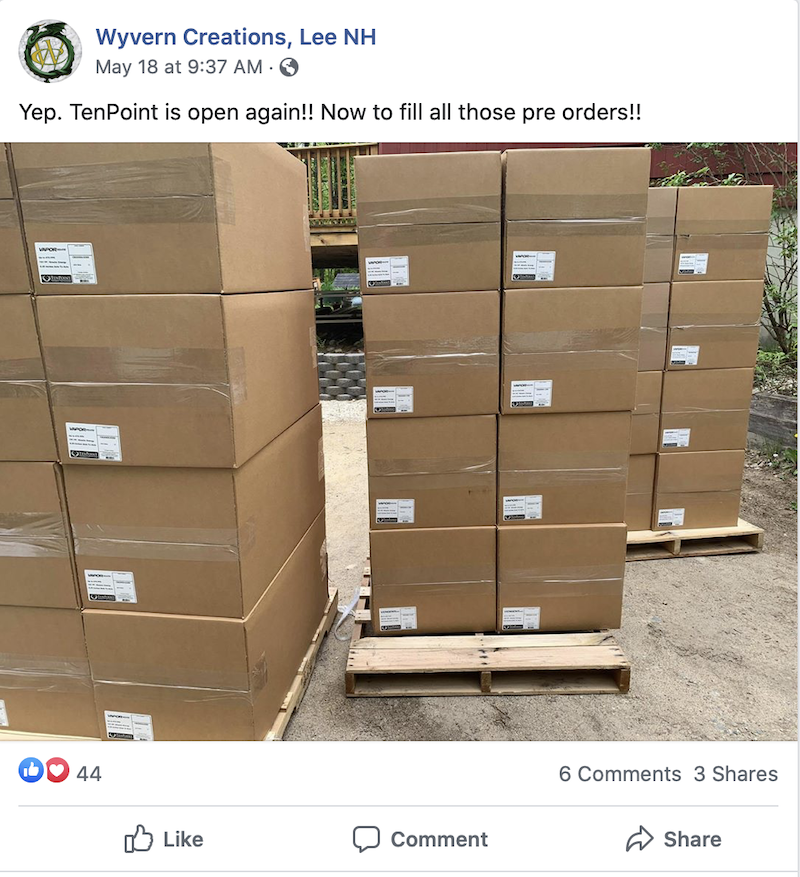Retail
Should I Sell Products Online?
Consider these pros and cons to decide if e-commerce business is worth your time.
Photo Credit: Unsplash
The COVID-19 pandemic prompted many brick-and-mortar retailers to question whether to sell products online.
To help you weigh your options and decide, we spoke to David Wilkins, owner of Wyvern Creations LLC, an online-only crossbow dealer. Wilkins launched his business 12 years ago, and offers insights about e-commerce to teach others what to expect.
Wilkins likes to debunk an e-commerce myth he often hears.
“People think they can put a product online, and then kick back and watch the sales flow in, but that’s not how it works,” he said. “It’s actually really tough and labor-intensive to succeed.”
Wilkins said e-commerce involves far more than many people think, including overhead costs, marketing, packing and shipping, and dealing with broken or damaged items.
“It’s a real business,” he said. “It doesn’t run itself. You have to run it.”
Let’s review some claims to determine if online sales would help your business.

Online sellers don't have to worry about setting up displays or the visual strategy of a store layout. They can leave the product in boxes. Photo Credit: Wyvern Creations
E-commerce sites let you sell products to people worldwide. You’re not limited to a geographic area like you are with a storefront, so distant consumers can view your website and products. It’s also easy for people to copy and share links with friends and family, which means your website has the potential to be seen by hundreds or thousands of people daily.
Most e-commerce businesses have low setup costs compared to physical storefronts. Once you establish an e-commerce site, you could make lots of money in a few hours because multiple people can check out simultaneously. You might envision Black Friday or other sales events, but that usually only happens with a well-established customer base.
E-commerce retailers display products on a webpage, not a store shelf, so they don’t need to stock shelves or create eye-catching displays. Wilkins said products can arrive in boxes and stay in boxes until you ship them, so sales aren’t labor-intensive. An added benefit is that you don’t have to dress up or look polished, because you don’t work face to face with customers.
https://youtu.be/BNHR6IQJGZs
Wilkins said online and brick-and-mortar businesses differ significantly. Operations, customers and selling processes also differ. Brick-and-mortar retailers must maintain shelves and a physical location, whereas online retailers must have contracts with shipping companies. Brick-and-mortar retailers also cater to service-driven customers, whereas online retailers must cater to price-driven customers.
Therefore, you’ll likely need separate teams, websites and policies to manage an e-commerce business. People will also contact you with questions day, night and on holidays. Wilkins said he only hunted 5½ hours during the 2019 deer season, and often responded to emails from the stand.
Competitors flood online markets. Wilkins said the competition is “nightmarish.” To succeed, you must have a good online ranking.
Google and other search engines rank websites based on relevancy. The higher a website’s ranking, the easier people find it online. Wilkins thinks about it like this: “If your website appears on Page 7, no one will find you [or your offerings.]”
Your website must contain good links, content and keywords to improve your ranking. You can also improve your search-engine optimization strategies, including publishing content regularly, creating good product titles and descriptions, and checking your internal links and checkout process for errors.
Wilkins said consumers want quick, easy online buying. They also want free shipping, and expect to receive their product within days. A Fisher study found 90% of online shoppers said high shipping fees and home delivery that takes longer than two days will likely abort their purchase. If you can’t meet those demands, you’ll likely struggle online.
If you’re excited about creating an e-commerce site and business, Wilkins suggests doing more research before committing. Wilkins said you must have manpower, inventory, a specific e-commerce website, an organized packing and shipping process, and time to market products and answer consumer questions.
“[Retailers] can do it, but it’s a time commitment,” he said.
Wilkins said to focus on your strengths.
“People try to be everything to everyone,” he said. “They try to sell everything, but they can’t do that well. They need a focus. They should concentrate on selling 20 individual items really well, rather than 200 items inadequately.”
Visit Score.org for advice, resources and information about e-commerce. The site has recorded webinars, local mentoring, and insightful blogs to help you start. For more information, read these articles:
- Ready to Start an Online Store? What to Consider Before Starting an Ecommerce Site
- Building an E-commerce Based Small Business
- 3 Areas to Improve Customer Experience on Your Ecommerce Website

WE ARE HERE TO HELP THE INDUSTRY, TO HELP INDIVIDUAL BUSINESSES GET THE MOST OUT OF THE INDUSTRY, AND TO HELP YOU.
